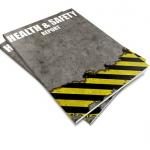
The recent amendments to the Labour Code concerning the application of professional standards by employers have resulted in country-wide discussions on whether the application of professional standards and professional re-training of occupational health and safety (OHS) specialists is mandatory for employers. The Labour Code provisions have failed to provide a clear and unambiguous answer to this question.
The Professional Standard for an OHS specialist (approved by Order No. 524n of 4 August 2014) requires that an OHS specialist is educated:
- “to a degree level in the area “Technological safety” or a corresponding area or profession in the area of industrial safety; or
- to a degree level plus has additional professional OHS education or training; or
- to secondary education plus has additional professional OHS education or training.
Similar requirements for the education of OHS specialists are contained in the Common Qualification Reference Book for Managers and Specialists Performing Work in the Area of Occupational Health and Safety (adopted by Order No. 559n of 17 May 2012).
However, the mentioned Reference Book also permits an employee with sufficient practical experience to occupy the position of an OHS specialist.
The question is therefore arising: which of the mentioned statutory instruments should we use in order to assess requirements for the education and training of an OHS specialist? And another question is: do these documents contain mandatory requirements or do they have a status of recommendation?
The Labour Code (Article 195.3) does not shed any additional light to this issue and says that if any federal law or any other mandatory regulatory instruments impose qualification requirements for any job or position, then the employers are required to hire for such a job or position only those persons whose qualification complies with the requirements set out in the relevant professional standard.
In practice, although in the Russian legislation there is no instrument that imposes statutory requirements for the qualification of an OHS specialist, employers tend to send their OHS specialists for an additional professional training in order to avoid any complications that might appear as a result of state labour safety inspections.
A recent letter (No. 15-2/OOG-4698) issued by the Ministry of Labour and Social Security has, however, clarified some points relevant to the use of professional standards for OHS specialists. The position of the Ministry is as follows:
Since, according to the Labour Code an OHS specialist must possess the relevant training and experience, an employer may, at his discretion, appoint on this position a person who either has the relevant professional training (education) or relevant OHS experience. In the process of hiring an OHS specialist, the employer may choose to use the Professional Standard “OHS Specialist” but is not obliged to do so.
The conclusion that we may draw from the above is that employers are not obliged to send their OHS specialists for professional retraining, if such OHS specialists have the sufficient relevant work experience but do not have special education in the area of occupational health and safety.
Although the letter indeed clarifies the issue of the mandatory use of the Professional Standard “OHS Specialist”, it should also be noted that letters themselves are not mandatory statutory instruments and that they only have a status of recommendation.
Law: Letter No. 15-2/OOG-4698 of 26 December 2016 on the Application of the Professional Standard “Occupational Health and Safety Specialist”





